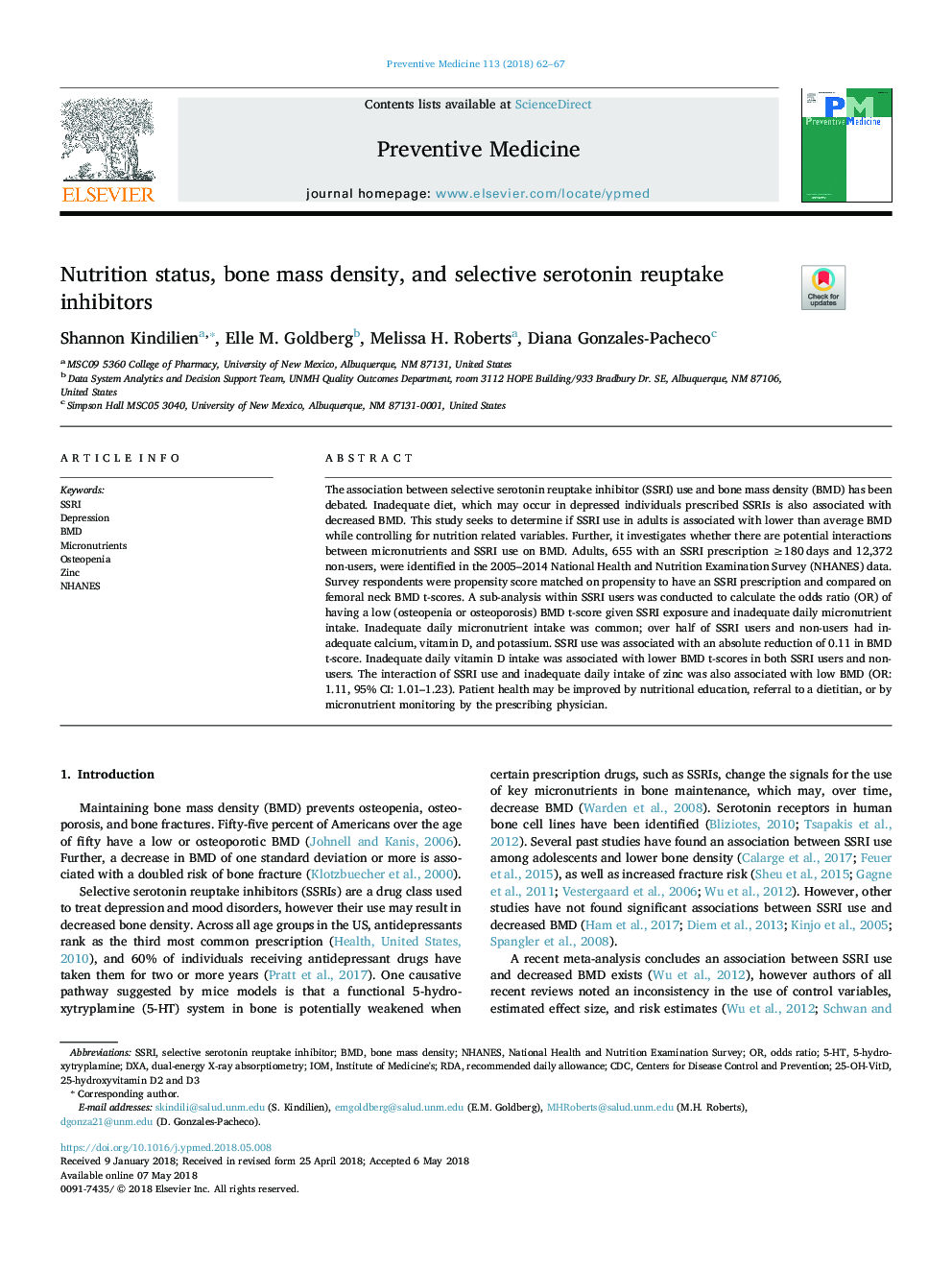| Article ID | Journal | Published Year | Pages | File Type |
|---|---|---|---|---|
| 8693460 | Preventive Medicine | 2018 | 6 Pages |
Abstract
The association between selective serotonin reuptake inhibitor (SSRI) use and bone mass density (BMD) has been debated. Inadequate diet, which may occur in depressed individuals prescribed SSRIs is also associated with decreased BMD. This study seeks to determine if SSRI use in adults is associated with lower than average BMD while controlling for nutrition related variables. Further, it investigates whether there are potential interactions between micronutrients and SSRI use on BMD. Adults, 655 with an SSRI prescription â¥180â¯days and 12,372 non-users, were identified in the 2005-2014 National Health and Nutrition Examination Survey (NHANES) data. Survey respondents were propensity score matched on propensity to have an SSRI prescription and compared on femoral neck BMD t-scores. A sub-analysis within SSRI users was conducted to calculate the odds ratio (OR) of having a low (osteopenia or osteoporosis) BMD t-score given SSRI exposure and inadequate daily micronutrient intake. Inadequate daily micronutrient intake was common; over half of SSRI users and non-users had inadequate calcium, vitamin D, and potassium. SSRI use was associated with an absolute reduction of 0.11 in BMD t-score. Inadequate daily vitamin D intake was associated with lower BMD t-scores in both SSRI users and non-users. The interaction of SSRI use and inadequate daily intake of zinc was also associated with low BMD (OR: 1.11, 95% CI: 1.01-1.23). Patient health may be improved by nutritional education, referral to a dietitian, or by micronutrient monitoring by the prescribing physician.
Keywords
Related Topics
Health Sciences
Medicine and Dentistry
Complementary and Alternative Medicine
Authors
Shannon Kindilien, Elle M. Goldberg, Melissa H. Roberts, Diana Gonzales-Pacheco,
